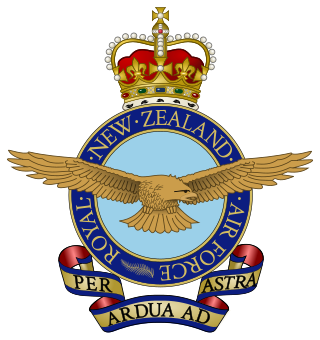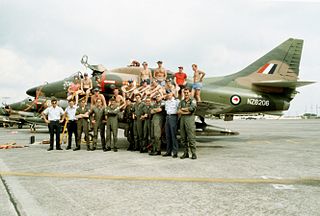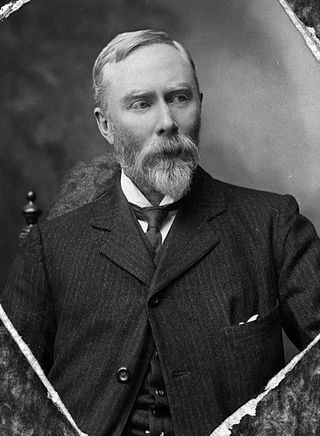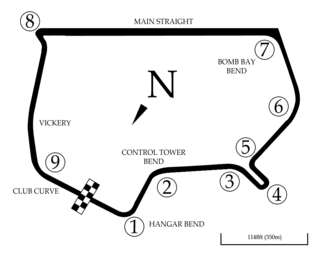Wigram is a suburb of Christchurch, New Zealand.
Wigram may also refer to:

The Royal New Zealand Air Force is the aerial service branch of the New Zealand Defence Force. It was formed initially in 1923 as a branch of the New Zealand Army, being known as the New Zealand Permanent Air Force, becoming an independent air force on 1 April 1937.

The Lockheed Hudson is a light bomber and coastal reconnaissance aircraft built by the American Lockheed Aircraft Corporation. It was initially put into service by the Royal Air Force shortly before the outbreak of the Second World War and primarily operated by it thereafter. The Hudson was a military conversion of the Model 14 Super Electra airliner, and was the first significant aircraft construction contract for Lockheed — the initial RAF order for 200 Hudsons far surpassed any previous order the company had received.
RAF refers to the Royal Air Force, the air force of the United Kingdom.

Wigram is a suburb in the southwest of Christchurch, New Zealand. The suburb lies close to the industrial estates of Sockburn and the satellite retail and residential zone of Hornby, and has undergone significant growth in recent years due to housing developments. It is seven kilometres to the west of the city centre.

No. 75 Squadron RNZAF was an air combat squadron of the Royal New Zealand Air Force. It was formed from the RAF's World War II bomber squadron, No. 75 Squadron, which had been initially equipped by the New Zealand government and was largely manned by New Zealanders. The squadron was created when, in a unique gesture, the squadron number, colours and battle honours were transferred to the RNZAF in 1946. It had flown more sorties and suffered more casualties than any other in the European theatre.

No. 2 Squadron RNZAF was a squadron of the Royal New Zealand Air Force (RNZAF). It was formed in 1930 as part of the Territorial Air Force with the main headquarters at Wellington and shadow flights at New Plymouth and Wanganui. Squadron personnel conducted their annual flying at RNZAF Base Wigram. In 1937 the Territorial Squadrons were re-organised and No. 2 Squadron became the Wellington Territorial Squadron.
14 Squadron or 14th Squadron may refer to:

Wigram Aerodrome is located in the Christchurch suburb of Sockburn, later to be split-suburb of Wigram and now split again as Wigram Skies. It was gifted by Sir Henry Wigram for the Canterbury (NZ) Aviation Company on 20 September 1916 and originally named Sockburn Airport. In 1923 that was then gifted to the Crown as a Royal New Zealand Air Force base. Charles Kingsford Smith made the first Trans-Tasman flight from Sydney to Wigram on 10 September 1928.
Air Force Museum may refer to:

Sir Henry Francis Wigram was a New Zealand businessman, politician and aviation promoter. He is best known for his role in developing a public transport system in Christchurch and as a key player in the establishment of the Royal New Zealand Air Force.
In military terms, 4 Squadron, IV Squadron or 4th Squadron may refer to:
5 Squadron or 5th Squadron may refer to:
No. 6 Squadron or 6th Squadron may refer to:
16 Squadron or 16th Squadron may refer to:
30 Squadron or 30th Squadron may refer to:

Wigram Airfield Circuit was a temporary motor racing circuit at Wigram Aerodrome, Christchurch, New Zealand. The airfield is a former base of the Royal New Zealand Air Force. It is named after Sir Henry Wigram. The temporary circuit was 3.540 km (2.200 mi) with a 1.3 km (0.81 mi) main straight. The first summer meetings held at Wigram Aerodrome in 1949 are considered the oldest motor races in New Zealand. The track hosted rounds of the annual Tasman Series from 1964 to 1975. For safety reasons, the last race at Wigram was held in the year 2000.
41 Squadron or 41st Squadron may refer to:
7 Squadron or 7th Squadron may refer to:
40 Squadron, No. 40 Squadron or 40th Squadron may refer to:

Megan Cherie Woods is a New Zealand Labour Party politician who served as a Cabinet Minister in the Sixth Labour Government and has served as Member of Parliament for Wigram since 2011.